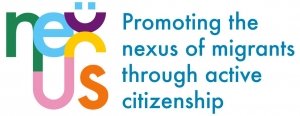The objective of these activities is to promote innovative ways in which HEI can support and work with wider communities by enabling civic engagement within a diverse student group, specifically focusing on service learning. For this, the project has produced community engagement and service-learning guidelines for HEIs.
Same as other organizations, the higher education institutions are under a great public watch and under strong pressure when it comes to achieving a positive impact on the community. Finally, students themselves require quality and purposeful study programs in line with the labor market and current social trends. At the same time, the teaching processes require the introduction of new, innovative methods of working, learning and teaching, those that involve the integration of local, regional and global problems in the curriculum. In the broader perspective, it is necessary to ensure strong connection, ie cooperation and knowledge exchange between universities and local communities, as well as a joint response to challenges. This is the reason why community engagement is the main policy Nexus advocates for.
Meeting societal needs
Community engagement is still at an early, peripheral phase in many European HEIs, and the central challenge is in placing it at the heart of HEIs life. This is one way to HEIs to work better together to meet societal needs and harness the power of HEIs’ diverse knowledge bases to drive a sustainable and inclusive Europe.
Making civic engagement central to HE necessitates changes in its full portfolio of activities. HEIs must build up their capacity to deliver and accept community engagement, as well as to embed community engagement within core teaching and research activities.
Service learning as an educational method and as an integral activity of community engagement is crucial for Nexus because it implies cooperation between the academic community and the civil sector in the classroom, it contributes to the achievement of a „civil“ mission of the university, which directly facilitates the development of the social responsibility of students and other members of the academic community in solving specific social problems.
Recommendations for enhancing practices
The Community Engagement and Service-Learning— Guidelines for HEIs produced by the project team, provide ideas and facilitate collaboration between students, staff, local authorities, and the local and wider communities. They provide a strategic framework on civic engagement for HEIs on how to promote innovative ways in which HEIs can support and work with wider communities by enabling civic engagement within a diverse student group, specifically focusing on Service Learning.
Service learning for e-participation
In particular, the project explores service learning for e-participation, which have the following characteristics:
- integrates meaningful community service into the curriculum;
- offers academic credit for learning that derives from active engagement;
- can lead to greater civic engagement of students;
- brings together students, academics and the community;
- raises awareness about the importance of civic engagement in a diverse student group;
- explores the possibilities of virtual service-learning.

